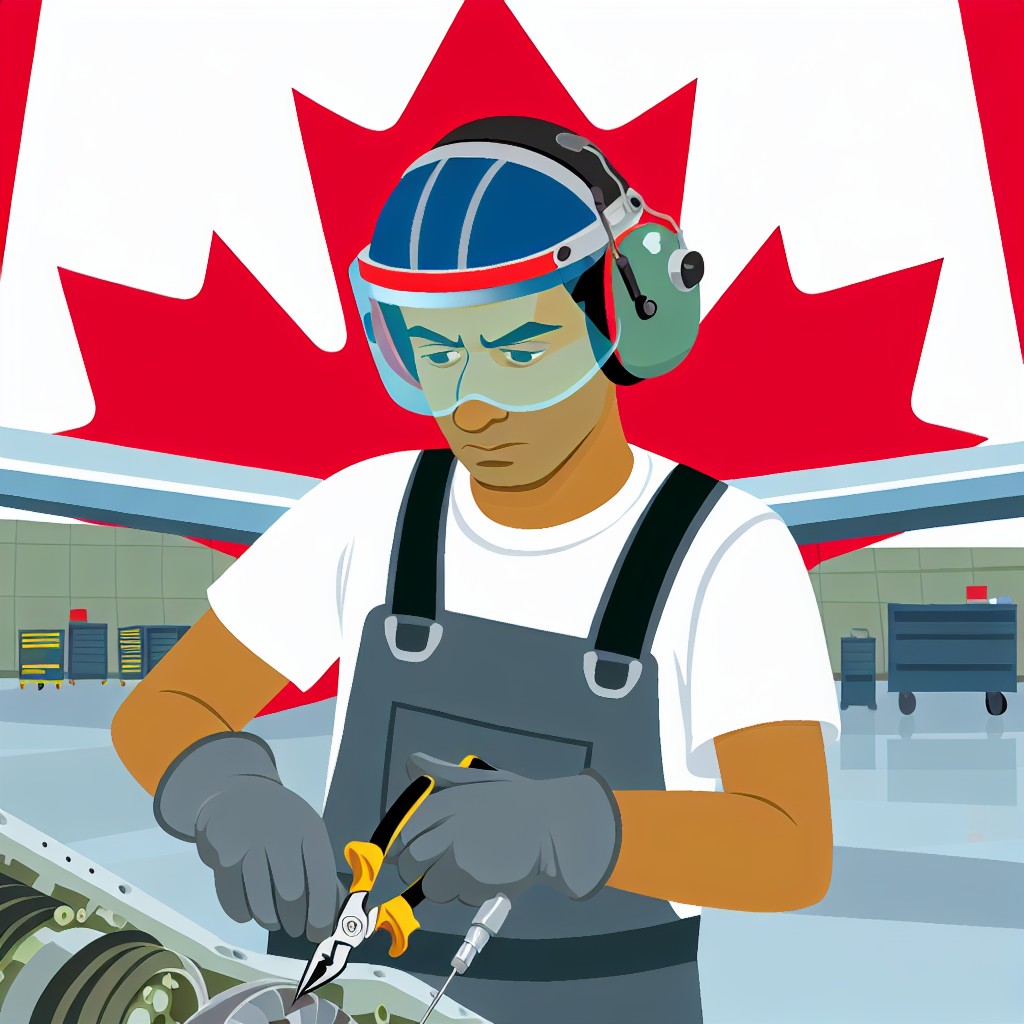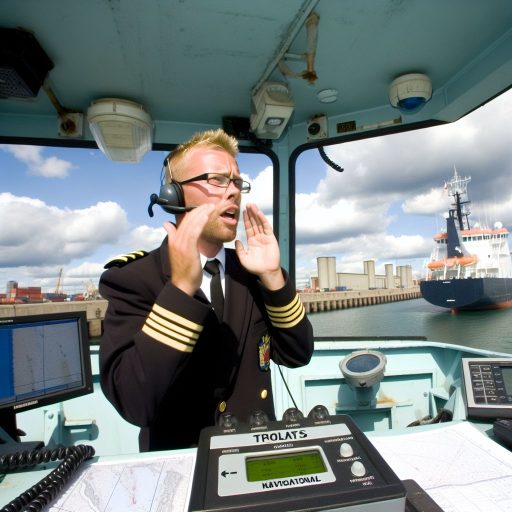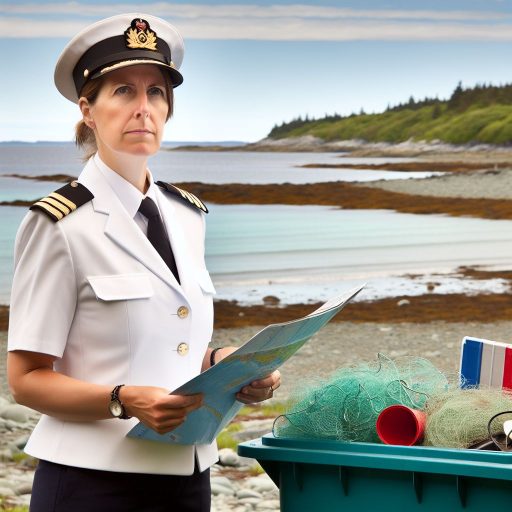Understanding the Aviation Maintenance Industry
Key Roles in Aviation Maintenance
Aviation maintenance involves several crucial roles.
Each role plays an integral part in ensuring aircraft safety and efficiency.
One primary role is that of an aircraft mechanic.
Aircraft mechanics perform inspections and repairs on various aircraft systems.
They ensure compliance with safety regulations and manufacturer guidelines.
Another important position is the avionics technician.
These technicians focus on aircraft electronic systems.
They troubleshoot and repair communication, navigation, and radar systems.
They ensure that all electronic components function correctly.
Moreover, aviation maintenance managers oversee the maintenance operations.
They coordinate between different teams to facilitate efficient workflows.
They also implement safety protocols and manage maintenance budgets.
Responsibilities in Aviation Maintenance
Technicians and mechanics have diverse responsibilities.
They conduct routine inspections to identify potential issues.
Repairing engines, braking systems, and electrical components are common tasks.
In addition, they often document their work for compliance purposes.
This documentation is crucial for regulatory inspections.
Aviation maintenance professionals also have to stay updated on regulations.
They must learn new technologies as the industry evolves.
Continuing education often involves attending workshops and training sessions.
Certifications and Training
Many roles in aviation maintenance require specific certifications.
One common certification is the Federal Aviation Administration (FAA) Airframe and Powerplant license.
This certification allows individuals to work on both airframe and engine systems.
In addition, many employers prefer candidates with specialized training programs.
Aviation maintenance schools offer degree programs tailored for this industry.
Unlock Your Career Potential
Visualize a clear path to success with our tailored Career Consulting service. Personalized insights in just 1-3 days.
Get StartedThese programs typically include hands-on training and classroom instruction.
Pursuing a career in aviation maintenance offers diverse opportunities.
Understanding the key roles and responsibilities can set you on the right path.
Educational Pathways: Certifications, Diplomas, and Degree Programs
Types of Educational Credentials
Starting a career in aviation maintenance requires specific educational paths.
First, consider obtaining a certification from a recognized authority.
Many technicians choose this route for its focused training and quick entry into the field.
Additionally, diplomas provide a solid foundation in aviation maintenance principles.
They often include hands-on training and coursework that are essential for the job.
Some may opt for degree programs, typically a two- or four-year commitment.
A degree enhances career prospects and may lead to management positions.
Certification Programs
Certification is a vital step in aviation maintenance careers.
The Federal Aviation Administration (FAA) oversees many certification programs.
Students typically earn an FAA Airframe and Powerplant (A&P) certificate.
This certification allows individuals to work on various aircraft systems.
Airframe certifications focus on the aircraft body, while powerplant certifications focus on engines.
Completing an FAA-approved program accelerates the certification process.
Hands-on experience is often gained through internships or apprenticeships.
Diploma Programs
Diploma programs usually last about one year.
These programs offer focused training that covers essential maintenance skills.
They typically include coursework in mechanics, electronics, and aerodynamics.
Students benefit from hands-on training in labs and workshops.
Many vocational schools and community colleges offer diploma programs.
Consider school accreditation to ensure quality training and recognition.
Degree Programs
Degree programs in aviation maintenance range from two to four years.
Associates degrees provide comprehensive education and practical skills.
Students learn advanced troubleshooting and maintenance techniques.
A bachelor’s degree facilitates career advancement into management roles.
Many universities offer aviation maintenance programs that combine technical skills with business knowledge.
Internships are often included, providing invaluable industry experience.
Graduate degrees are available for those seeking specialized roles in the field.
Continuing Education and Professional Development
Continuing education is essential in this ever-evolving industry.
Technicians often pursue additional certifications throughout their careers.
Professional development helps keep skills current with technological advancements.
Attending industry conferences or workshops can enhance knowledge and networks.
Employers may provide training opportunities to support ongoing learning.
Consider certification renewal requirements to maintain credentials.
Engaging in lifelong learning enriches your expertise and improves job prospects.
Gaining Experience: Internships and Apprenticeships in Aviation Maintenance
The Importance of Real-World Experience
Real-world experience in aviation maintenance enhances your skills significantly.
Internships and apprenticeships provide opportunities to learn from experts.
Additionally, they allow you to apply theoretical knowledge to practical situations.
Finding the Right Opportunities
Begin your search by exploring local aviation schools.
Many schools offer internship programs that align with their training courses.
Moreover, reach out to aviation maintenance facilities directly.
Networking at industry events can also lead to internship opportunities.
Types of Internships
Consider various types of internships available in aviation maintenance.
- Hands-on internships at repair stations
- Administrative roles in aviation firms
- Internships with airlines for maintenance support
Steps to Secure an Internship
First, create a strong resume highlighting your skills and education.
Next, tailor your cover letter for each application.
Be sure to showcase your passion for aviation and maintenance.
Finally, prepare for interviews by researching the companies.
Apprenticeship Programs in Aviation Maintenance
Apprenticeships offer structured training in aviation maintenance.
Many are sponsored by aircraft manufacturers or repair organizations.
These programs combine on-the-job training with classroom instruction.
Benefits of Apprenticeships
- Receive mentorship from experienced professionals
- Gain a competitive edge in the job market
- Develop a thorough understanding of industry standards
Furthermore, apprentices often receive payment while they train.
Making the Most of Your Experience
Approach your internship or apprenticeship with eagerness to learn.
Be proactive in asking questions and seeking feedback.
Document your learning and experiences to reflect later.
Finally, maintain professional relationships for future opportunities.
Discover More: How Maritime Pilots Navigate Canada’s Coastal Waters
Essential Skills for Aviation Maintenance Technicians
Technical Skills
Aviation maintenance technicians need strong technical skills.
They must be proficient in reading airplane schematics.
Knowledge of aircraft systems is crucial for troubleshooting.
Technical expertise helps ensure safe aircraft operations.
Furthermore, hands-on experience with tools is essential.
Familiarity with diagnostic equipment is also important.
Industry certifications validate technical knowledge and skills.
Technicians often work with complex electronics and mechanics.
Software proficiency aids in managing maintenance records.
Continuous learning keeps technicians up-to-date with advancements.
Soft Skills
In addition to technical skills, soft skills are vital.
Effective communication can enhance teamwork and safety.
Critical thinking allows technicians to solve complex problems.
Attention to detail helps prevent costly mistakes.
Adaptability is crucial in a fast-paced environment.
Time management ensures timely completion of tasks.
Leadership skills can help technicians advance their careers.
Interpersonal skills foster positive relationships with colleagues.
Lastly, a strong work ethic contributes to overall performance.
Find Out More: Career Growth Opportunities in Fleet Management in Canada
Navigating Industry Regulations: FAA and Transport Canada Guidelines
Understanding FAA Regulations
The Federal Aviation Administration (FAA) sets the standards for aviation maintenance in the United States.
These regulations ensure safety, quality, and integrity in the aviation industry.
Familiarizing yourself with FAA regulations is essential for your career.
Start by reviewing the Federal Aviation Regulations (FAR) Part 43.
This section covers the maintenance, preventive maintenance, and alterations of aircraft.
You must also understand the certifications necessary for aviation mechanics.
Consider earning an Airframe and Powerplant (A&P) certificate to enhance your credentials.
This certification allows you to work on various aircraft and systems.
Exploring Transport Canada Guidelines
If you plan to work in Canada, familiarize yourself with Transport Canada regulations.
Transport Canada also emphasizes safety and competence in the aviation sector.
Review the Canadian Aviation Regulations (CARs), particularly Part V.
Part V covers the standards for maintenance and the qualifications of aviation personnel.
It is critical to understand the requirements for licensure in Canada.
Seek to acquire a licensed aircraft maintenance engineer (LAME) designation.
This certification is vital for anyone working on aircraft in Canada.
Importance of Compliance
Compliance with these regulations is not optional; it is mandatory.
Failure to adhere can lead to severe consequences, including fines or job loss.
Moreover, understanding regulations enhances your marketability in the job market.
Employers seek candidates with a solid grasp of industry standards.
Therefore, continually educate yourself about any changes in regulations.
Join professional associations or online forums to stay updated.
Seeking Additional Resources
Explore various resources to deepen your knowledge of aviation regulations.
Official resources, such as the FAA and Transport Canada websites, provide valuable information.
Consider attending training seminars and workshops focused on aviation maintenance.
These events often cover regulations and best practices in the industry.
Networking with other professionals can also yield helpful insights.
Utilizing books and online courses can further your understanding of the regulatory landscape.
Stay proactive in your education to ensure compliance and safety in your career.
Discover More: Freight Forwarder Salary Expectations And Growth Potential
Building a Professional Network
Importance of Networking
Networking is essential for a successful career in aviation maintenance.
It opens doors to job opportunities and industry insights.
Additionally, it helps you build relationships with experienced professionals.
Joining Aviation Maintenance Associations
Consider joining aviation maintenance associations to expand your network.
These organizations provide valuable resources and networking opportunities.
For instance, the Aircraft Maintenance Engineers Association (AMEA) offers training and seminars.
Another option is the National Association of Power Engineers (NAPE), which focuses on education.
Participating in Industry Events
Attend industry events to meet fellow professionals.
Conferences, workshops, and trade shows are excellent networking opportunities.
Engaging in discussions at these events can enhance your knowledge base.
Moreover, it puts you in contact with potential employers and collaborators.
Utilizing Online Platforms
Leverage online platforms to connect with industry experts.
LinkedIn is a great tool for professional networking.
Join relevant groups and participate in discussions.
Also, consider participating in webinars and virtual conferences.
Building Relationships
Focus on developing genuine relationships within the industry.
Reach out to former classmates or colleagues in aviation maintenance.
Keep in touch with mentors and ask for advice when needed.
These connections can lead to referrals and job recommendations.
Learn More: Fleet Maintenance Best Practices for Canadian Managers

Job Search Strategies
Crafting a Resume
Start by outlining your relevant skills and experiences.
Use clear, concise language throughout your resume.
Highlight any formal education or training in aviation maintenance.
Include certifications from reputable aviation organizations.
Tailor your resume for each specific job you apply for.
Use action verbs to describe your accomplishments effectively.
Keep your formatting consistent and easy to read.
Include your contact information at the top of your resume.
Don’t forget to proofread for grammar and spelling errors.
Preparing for Interviews
Research the company before your interview.
Understand the specific role and requirements you are applying for.
Prepare answers for common interview questions related to aviation.
Practice framing your experiences positively.
Consider role-playing with a friend to simulate the interview.
Dress appropriately and professionally for your interview.
Arrive early to demonstrate punctuality and commitment.
Bring extra copies of your resume to share with interviewers.
Follow up with a thank-you email after the interview.
Continuing Education and Certifications: Keeping Skills Up-to-Date
The Importance of Continuing Education
Continuing education is crucial in aviation maintenance.
Technological advancements happen rapidly in this industry.
Staying updated ensures you remain competitive in the field.
Certification Programs Overview
Certification programs validate your skills and knowledge.
Organizations like the FAA offer various certifications.
Part 147 schools provide training programs for aspiring technicians.
Popular Certifications to Consider
- A&P Certification: This allows work on airframes and powerplants.
- Inspection Authorization: This advanced certification is for experienced technicians.
- Avionics Certification: This focuses on aircraft electronic systems.
Keeping Skills Relevant
Participate in training workshops regularly.
Attend industry seminars to learn about the latest developments.
Networking with professionals can also provide valuable insights.
Online Learning Opportunities
Many online platforms offer courses related to aviation maintenance.
These courses can be flexible and cater to your schedule.
Consider institutions like Embry-Riddle Aeronautical University for advanced studies.
Maintaining Your Certifications
Most certifications require renewal every few years.
Complete the necessary continuing education units for renewal.
Stay organized with timelines to ensure you don’t miss requirements.
Career Advancement Opportunities: Specializations within Aviation Maintenance
Overview of Specializations
Aviation maintenance offers various specializations for career advancement.
These specializations allow professionals to focus their skills and expertise.
By choosing a specialization, you enhance your career prospects significantly.
Airframe and Powerplant Technicians
Airframe and powerplant technicians hold critical roles in aviation maintenance.
This specialization focuses on both airframe structures and aircraft engines.
Technicians conduct extensive inspections and repairs on aircraft.
They ensure compliance with safety regulations and manufacturer guidelines.
Avionics Technicians
Avionics technicians specialize in the electronic systems of aircraft.
These systems include communication, navigation, and flight control features.
Technicians troubleshoot and repair a range of complex electronic components.
A strong understanding of technology is essential for success in this field.
Structures Technicians
Structures technicians are experts in the physical components of airplanes.
They work with materials like aluminum, composites, and other lightweight materials.
This specialization involves repairing and maintaining airframe structures.
These technicians play a vital role in sustaining aircraft integrity.
Propeller Technicians
Propeller technicians focus on the maintenance and repair of aircraft propellers.
Specialized skills are necessary for working with different propeller types.
These technicians ensure propellers operate safely and efficiently.
They also perform inspections and make critical adjustments as needed.
Future Trends and Emerging Specializations
The aviation industry continually evolves, creating new specialization opportunities.
A growing number of technicians focus on sustainable aviation practices.
Specialties in electric and hybrid propulsion systems are also gaining importance.
Keeping pace with advancements enhances your career longevity and relevance.
Certification and Training
Advanced training and certification enhance your credibility in any specialization.
Many educational programs offer focused training in specific areas.
Certifications often come from recognized aviation bodies and organizations.
These credentials significantly improve job prospects and career growth.




